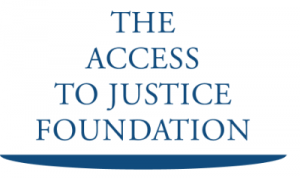Gender Gaps in Access to Civil Legal Justice
The Women’s Budget Group, using funding from the Community Justice Fund and with support from the Access to Justice Foundation, has today released a report with new survey data that sheds light on gender disparities in accessing civil legal justice and the pressing needs, barriers, and adverse impact faced by women as a result of reduced funding for the civil justice system.
Drawing upon the insights gathered from an extensive online survey of 115 organisations and services working in advice services, solicitor law firms, and Law Centres across the country, this report provides a detailed analysis of the challenges faced by women in navigating and financing their interactions with civil justice issues.
The findings reveal a significant and disproportionate disadvantage experienced by women within the civil justice system. Discrimination against women remains chronic, with insufficient awareness of women’s issues and a lack of enforcement of laws directly affecting women, such as equality and discrimination laws. Gendered inequality issues are compounded by intersectional factors, placing Black, minority-ethnic, and disabled women at an even greater disadvantage.
Commenting on the findings, Dr Sara Reis Deputy Director said,
The report reveals a troubling reality: the legal aid changes introduced in 2012 have cut a critical lifeline for vulnerable women including survivors of domestic and sexual abuse and asylum-seeking women, leaving them without essential legal support in the face of discrimination, violence, and housing insecurity. Policymakers should widen the eligibility criteria for legal aid, particularly for employment discrimination, and provide training and education for professionals to resolve the issues faced by women sooner and close the gender civil justice gap. Legal interventions hold the potential to address issues uniquely important to women, and advice services can play a fundamental role in improving women's lives.
Clare Carter, Chief Executive of the Access to Justice Foundation, the host organisation for the Community Justice Fund, commented
Women experiencing employment disputes are more vulnerable to discrimination and less favourable treatment, and migrant women have specific needs relating to accessing welfare benefits and their experiences of trafficking and domestic violence
The report highlights the distinctive profile of legal needs among women, which predominantly fall within the areas of law most affected by a lack of public funding, particularly specialist social welfare law. Employment, housing, social security, family, and immigration and asylum are the most common civil legal issues that women seek help for.
You can find more information, and read the full report here.
The current resourcing and capacity constraints faced by frontline advice providers mean that thousands of women will go without the critical advice needed to secure their and their family’s well-being. It is clear that increased and continued investment is essential to ensure that advice services are equipped to meet the additional needs of women in the civil justice system.
The Community Justice Fund Funding Gap Report highlighted the pressing need for additional resources, with the sector requiring at least an extra £15-£20 million per annum to meet any increase in demand.
The publication of the Gender Gaps in Access to Civil Legal Justice report serves as a call to action. It is imperative that policymakers, stakeholders, and society as a whole prioritize and address the systemic barriers faced by women within the civil justice system. By investing in advice services and ensuring they have the necessary resources to support women, we can empower them to feed their children, remain in the workforce, and protect themselves and their families from abuse.
